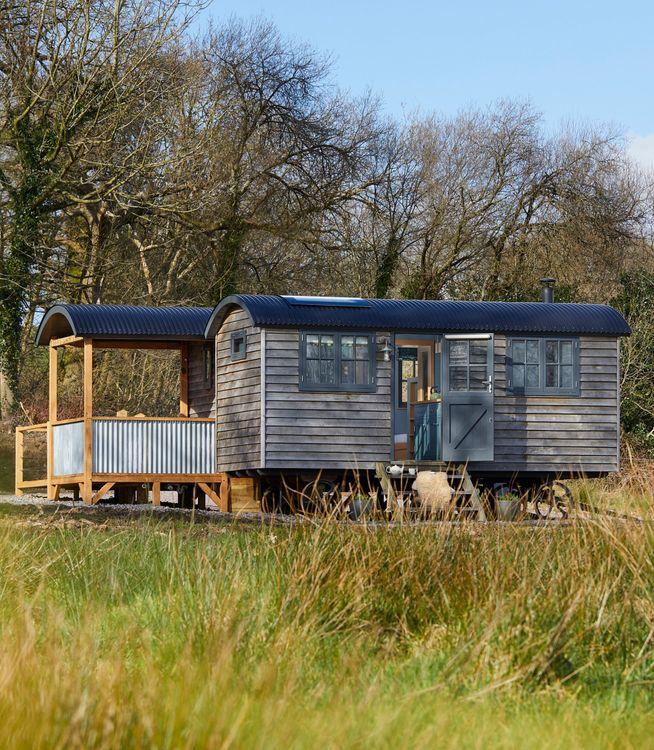
VAT – frequently asked questions
We often get asked how to handle VAT. There are plenty of technical questions about applying it to your prices, reaching the threshold and registering. We thought that the best person to clear it all up was owner of Dimpsey and trained accountant Emma Warren, so Jennie of the Owner Support Team got in touch.
Do our owners need to add VAT on top of their prices with Canopy & Stars?
If an owner is VAT registered, they should include VAT in their prices. If they aren’t then they won’t need to. Canopy & Stars won’t know whether owners’ prices include VAT or not, nor whether that owner is VAT registered. As they’re the agent, they hold the money for owners and then pass it over. It’s up to the owners to arrange VAT.
The VAT threshold – what is it, hitting it and some other tips and advice
Please refer to the government website for the most up to date VAT threshold – this is a useful link https://www.gov.uk/vat-registration
When they talk about taxable turnover, they mean the total value of everything that you sell that is not exempt from VAT. The turnover threshold is based on a rolling 12 months, which basically means that as soon as you have, or are aware that you will, reach and exceed the threshold turnover for the year, you need to register for VAT.
The link above explains all about this, it is something you can do yourself if you feel confident enough to, or get your accountant to do it for you. In either case it’s worth chatting to your accountant about it first and there might be some things that are specific to your business that could be beneficial to know, particularly if you are about to undertake the set-up of your site which can involve a lot of VAT-able expenses which you could be eligible to reclaim if you are VAT registered.
Once you have registered, you will receive a VAT number and a registration date. You have to charge VAT from that date and submit a quarterly VAT return showing what you have purchased and what you have sold. If you are running your accounts on a computer system, then you will probably have the ability to calculate the VAT on there, but if not, you can keep the records on a spreadsheet or manually.
Is there anything I need to do to prepare for becoming VAT registered (and the other way around if stopping being VAT registered, e.g. if retiring)?
I think it’s good practice at the very least to have paperwork for every transaction in and out, and to keep them in a folder so you know where they are – you can start this as soon as you start your business and it gets you into good habits which will be very helpful as you grow.
Again, talk to your accountant or bookkeeper when you are starting up or thinking of retiring, as their advice could help you reclaim VAT in either situation – most times it is about ensuring that you are aware of what you need to have on invoices etc to enable you to reclaim the VAT.
Your booking system should have a field for you to indicate if you are VAT registered or not, and to input your VAT number – which should then appear on your paperwork. Different booking systems handle this in different ways, so just ask them or your accountant for advice if you’re not sure.
Your VAT number must be shown on your invoices to anyone, and you must have a VAT invoice or receipt for you to reclaim VAT on purchases.
Basically, don’t fly blind on it – it would be so annoying if your accountant came to do your year end accounts and pointed out that if you had done XYZ, you could have reclaimed some costs!
What will my statement look like if I become VAT registered? What are the implications/benefits of becoming VAT registered?
Your statement from Canopy & Stars would look the same – they invoice you for commission and charge you VAT on it as they are VAT registered. If you are not VAT registered, the whole amount including VAT is deducted as an expense and you cannot reclaim the VAT. If you are VAT registered then that invoice goes on the purchases side of your VAT return and you reclaim the VAT on it.
If you are VAT registered, then your gross turnover in the quarter will also contain 20% VAT, which you account for on your VAT return and pay each quarter. This is unless you are on a slightly different system like cash accounting, which your accountant can talk to you about.
Your VAT return is the submission you make each quarter (usually) and it adds up all your turnover and calculates how much VAT you owe, all your purchases and the amount of VAT you can reclaim. The difference between them is the amount you pay to HMRC or reclaim from them, depending on your figures.
Can I pass on the VAT to guests?
You can, but your guests may not want to pay it! Here’s why…
If possible, have a think about if you are likely to reach the VAT threshold when you start your business, or well before you approach it. You can then set your pricing accordingly from the outset.
Here’s an example to illustrate why that’s important:
If your price is £120 per night, then all of that will come to you before you register for VAT ( barring any Income Tax obviously). The VAT rate applicable for most registrations is likely to be 20% – so I’ll use that in this illustration.
Once you register for VAT then the same price to your customer would mean £100 sale value to you and you pay £20 VAT over to HMRC in your VAT return. Obviously you can reclaim VAT on the purchases you make, but hospitality companies tend not to have high levels of VATable purchases. This leaves your net income reduced by £20.
If you decide to pass the VAT on to your customer and maintain your own nightly price income then you would need to charge £120 plus 20% VAT which is £144 price to the customer- which gives you £120 income and £24 in VAT to be paid to HMRC, which might not be a price you are able to charge in your area and is quite a hike year-on-year for your guests, particularly if they are repeat bookings.
So considering VAT at the outset allows you to decide if you are likely to be VAT registered at any point and to set the prices accordingly. Ideally you will also be looking to see if that pricing generates you a profit as that’s an important factor to consider as well.
The key thing is not to panic, if you’re not feeling confident about VAT, talk to an accountant or bookkeeper and even ask them to come in and set the system up – then you can choose to do your VAT returns yourself once they have showed you how or ask them to do it each quarter – this is one of those things that can cause you lots of angst if you don’t like bookwork, so outsource it to someone who does like doing it and spend your time doing things that add value for your business.
My key tip would be, “paperwork, paperwork, paperwork.” Without VAT receipts and invoices, you can’t reclaim VAT and if you’re having to pay it on sales then you should be reclaiming it on purchases. So apply a system and stick to it.




